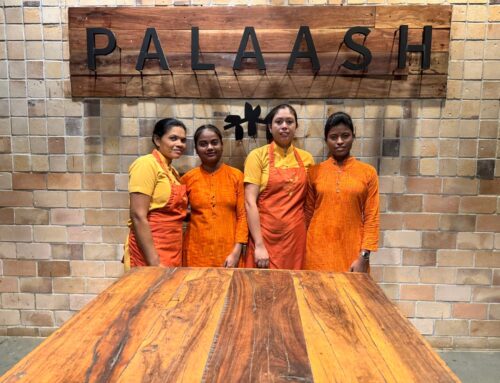Sat, Apr 13 2013. 12 08 AM IST
Chennai’s love for cheesy ‘compliments’
From the Great Chennai Paradox to the American ‘throw ins’—why this love for useless freebies?
Chennai shoppers buy a lot of gold, but a freebie makes them smile. Photo: McKay Savage/Wikimedia Commons
The lady wants a “compliment”. Nay, she insists on it. She has, after all, spent a few million rupees buying gold jewels at Malabar Gold. “Why no compliment?” she asks. The salesman pulls out a logo-ed plastic bag.
“Of course, I will give you a compliment, Mother,” he says. “If not for you, who will I give the compliment to?” He winks.
The sari-clad matron grudgingly accepts the cellophane-wrapped plastic bag. “No calendar?” she asks.
This then is the Great Chennai Paradox. Locals will spend a million bucks on gold and silks. They may even like their purchases. But they won’t truly feel satisfied till they get a cheesy calendar or plastic bag as a “compliment”.
To get a measure of this paradox, you have to begin at Panagal Park in T Nagar, where gold and silk shops spread as far as the eye can see. Named after the “Raja of Panagal” and Thyagaraya Chettiar—early founders of the anti-Brahmin Justice Party, T Nagar and Panagal Park have lost the socialist sentiments and proletarian leanings of the men after whom they were named. Instead, the area has turned into an elite shopping district, dedicated to the spending of moolah rather than upholding Dravidian son-of-the-soil principles. T Nagar is where you go to buy those awful Swarovski-studded Kanjeevarams, sold alongside genuine weaves at Sundari Silks, RmKV (the short acronym no doubt hides a long south Indian name), or Pothys.
Young Chennai eschews these old bastions. No Nalli and Kumaran silks for them and certainly no Rangachari’s, famous for its Sungudi saris—Tamil Nadu’s answer to Bandhini. For a selection of quintessential Tamil Nadu weaves from Arni, Dharmavaram, Chettinad, Madurai and Uraiyur, Rangachari’s is the place to go. The young set frequents boutiques such as Manjal (meaning turmeric) for Chettinad cottons, Sarangi near Loyola College for Ethicus organic saris, Ushas and Shilpi (old favourites still going strong) for dress materials and saris, or Tulsi Silks for wedding saris. Young Chennai doesn’t ask for a discount; and it most definitely does not ask for free “compliments” after buying a `50,000 sari.
Chennai isn’t alone with respect to the “compliment” concept. It may be called by other terms in other Indian cities, but the love of freebies is pan-Indian and perhaps global. Americans ask for “throw ins” when they buy cars. “Why don’t you throw in a car stereo with that BMW?” Travellers ask hotels and airlines for free upgrades—to first class or Club rooms. My grandparents asked for God calendars and bright yellow Leo Coffee cloth bags, which accumulated by the dozen in our dank storeroom.
Why this love for useless freebies? It is not value for money—our tendency to bargain takes care of that. Retail outlets use freebies to attract shoppers. Buy two, get one free—that sort of thing. The “compliment” concept, though, happens after the sale and has little to do with the amount spent. It has to do with customer happiness. An executive may be willing to pay `20,000 for a hotel suite but give him a free bottle of `400 wine and he will feel inordinately pleased.
Comedian Ash Chandler says that countries have tones: Russian sounds threatening; French, indignant; Italian sounds macho; German, precise. As for Indians, he says, we sound like we are negotiating, even when we make a date. “Come early, na? Let’s have a drink before dinner.” We drum down prices and forget the big picture in our hot pursuit of a deal. The sound of India may well be the sound of bargaining.
The sound of negotiation, bargaining, haranguing, call it what you will, rises to a crescendo in Mylapore, the mecca for shopping in old Chennai. Sari-clad matrons with oiled chignons haggle over the jasmine strings they adorn their hair with; they ask for the daily panchangam for free when they buy papad at the Ambika Appalam Depot; they stand in line for a free leaf-cup of sundal (Chennai’s chaat) after buying badam (almond) halwa at The Grand Sweets and Snacks. Mylapore has everything traditional Tamil-Brahmin families need and often their shopping takes a predictable route: ruby-like costume “temple” jewellery at Sukra Jewellery; Carnatic music CDs at Giri Trading; Hindu altar items at Indra Brass Pooja Metal Stores; topped off with a rava-masala dosa on a banana leaf at the Mylai Karpagambal Mess. These shops are a few steps from each other but often, the expedition takes hours because of the amount of back-and-forth bargaining in every shop. “Throw in a free CD,” at Giri Traders. “How about a free beeda (paan)?” at the Mylai Karpagambal Mess, and a free God image at Indra Pooja. If all else fails, we try to sneak in some free air conditioning.
At the Express Avenue mall, Chennai, one day, I ran into my septuagenarian uncle, ambling through its air-conditioned corridors with seven wizened buddies. “Too hot to walk on the beach, so we take our daily evening stroll in here,” he said in explanation. “Free air conditioning”.
They were clad in the Chennai elder uniform: white dhoti, (mis)matched with blazing yellow sneakers and a brown sweater to ward off the “chill” in case the temperature dropped from sweltering to bearable.
“The security guards at the mall hate us because we come in a group and don’t buy a thing,” added my uncle. “I hope they don’t start charging us an entry fee.”
The group cackled and ambled off.
Free air conditioning? Why this love for cheesy freebies?
Shoba Narayan had a drink at the ITC Grand Chola en route to the airport for its “free” air conditioning. Write to her at [email protected].
Also Read | Shoba’s previous Lounge columns




Leave A Comment